Introduction
Anxiety disorders are on the rise among teenagers. According to the National Institute of Mental Health, an estimated 31.9% of adolescents aged 13 to 18 will experience an anxiety disorder at some point.
As a parent, it’s understandable to want to help your anxious teen without necessarily turning to medication. The good news is many natural remedies can help relieve anxiety symptoms and promote a calmer state of mind.
In this article, we’ll explore 13 research-backed natural remedies for anxiety in teenagers. While medication is sometimes necessary, lifestyle changes and holistic approaches can make a big difference when it comes to managing teen anxiety.
Let’s explore “Natural treatment for anxiety in teenagers“ in this comprehensive guide.
Do read the People Also Ask (FAQs) about this topic.
Key Takeaway
| Summary |
|---|
| 1. Anxiety disorders are very common in teenagers, impacting nearly 1 in 3. |
| 2. Contributing factors include genetics, stress, trauma, and brain chemistry imbalances. Anxiety can severely impair daily life. |
| 3. Research shows regular exercise significantly reduces anxiety in teens. Aim for 30-60 minutes most days. |
| 4. Yoga combines physical movement, breathing and mindfulness to lower anxiety. Teens can practice yoga poses and meditation. |
| 5. Therapy like CBT provides anxious teens with coping skills and emotional support. |
| 6. Limiting caffeine intake can lessen anxious feelings since caffeine stimulates the nervous system. |
| 7. Magnesium-rich foods help replenish stores of this mineral linked to anxiety regulation. |
| 8. Omega-3 supplements may decrease anxiety symptoms and help brain health. |
| 9. Complex carbs provide essential nutrients for neurotransmitter synthesis. |
| 10. Adaptogen herbs like ashwagandha gently reduce anxiety and balance stress hormones. |
| 11. Aromatherapy using lavender, orange and other essential oils alleviates anxiety. |
| 12. Therapeutic massage promotes relaxation and lowers stress in teens. |
| 13. Mindfulness meditation teaches teens to find calm in the present moment. |
| 14. Spending time outdoors surrounded by nature has anti-anxiety benefits. |
| 15. Limiting social media use enhances teens’ mental health and well-being. |
Understanding Anxiety in Teenagers
Before diving into natural remedies, it helps to understand what’s behind teen anxiety in the first place.
Many factors can contribute to anxiety disorders in adolescents:
- Genetics: Anxiety disorders tend to run in families. If a parent has anxiety, there’s a chance their child will struggle with it too.
- Stress: School, social situations, family problems, and other pressures commonly trigger teen anxiety. Events like moving, divorce, or the loss of a loved one can also provoke anxiety.
- Trauma: Past traumatic events like abuse, illness, or accidents sometimes lead to anxiety disorders.
- Brain chemistry: Neurotransmitters like serotonin, dopamine and GABA regulate moods and emotions. Imbalances in these chemicals are linked to anxiety.
Anxiety can dramatically impact a teen’s life, leading to physical symptoms, poor school performance, disrupted sleep, and withdrawal from social activities.
While therapy and medication help many anxious teens, natural remedies can also make a difference, especially when combined with other treatments.It’s also worth considering the role of our surroundings, such as the kitchen, in managing and understanding anxiety.
13 Natural Remedies for Teenage Anxiety
Here are 13 research-backed Natural Treatment for Anxiety in Teenagers
- Exercise
- Yoga and Breathing Exercises
- Therapy and Counseling
- Cut Back On Caffeine
- Magnesium-Rich Foods
- Omega-3 Fatty Acids
- Complex Carbs
- Adaptogen Herbs
- Aromatherapy
- Massage Therapy
- Meditation and Mindfulness
- Nature Exposure
- Limit Social Media Use
1. Exercise
Regular exercise is one of the most effective natural anxiety treatments. Aerobic exercise like jogging, swimming, cycling and dancing reduces stress hormones like cortisol while stimulating feel-good endorphins.
Aiming for 30-60 minutes of exercise for anxious teens most days. Outdoor activities like hiking, kayaking and nature walks have extra anti-anxiety benefits. Even shorter bursts of exercise can calm the nervous system. Encourage your teen to find an exercise they enjoy and feel motivated to do routinely.
Studies confirm exercise reduces anxiety symptoms in teenagers. A Limited study found exercise significantly decreased anxiety scores in youth. Researchers note exercise provides a distraction, and increases self-esteem and emotional resilience while lowering muscle tension and blood pressure.
2. Yoga and Breathing Exercises
Yoga combines physical movement, breathing exercises and mindfulness. Research suggests yoga can lower anxiety levels.
In one study, 55 teenagers practised yoga for one hour per week over 11 weeks. Based on anxiety questionnaires, the yoga group experienced a significant drop in anxiety while the control group saw no change. EEG tests also showed yoga led to brain changes linked to lower anxiety.
Other studies confirm yoga in schools reduces anxiety among teens and children. Mindful breathing exercises alone also decrease anxiety. Have your teen try square breathing – inhaling for 4 seconds, holding for 4 seconds, exhaling for 4 seconds and holding again. Just 5 minutes of this meditation breathing can calm the nervous system.
3. Therapy and Counseling
Seeing a therapist provides anxious teens with caring support, coping skills and problem-solving strategies. Cognitive behavioural therapy (CBT) is ideal for treating anxiety disorders. CBT helps kids identify distorted negative thoughts and replace worry with a more realistic perspective.
Group therapy also allows teens to connect with others facing similar struggles. This helps reduce feelings of isolation. Look for a therapist who specializes in adolescent anxiety treatment.
4. Cut Back On Caffeine
Caffeine stimulates the nervous system. While some teens drink coffee or energy drinks to feel more alert, caffeine can worsen anxiety symptoms.
Research shows excess caffeine intake increases anxiety in youth. Caffeine also amplifies the physical symptoms of anxiety like rapid heartbeat and sweating.
Have your teen limit caffeine from sodas, teas, coffee and chocolate. Eliminating caffeine after lunchtime can help ensure restful sleep. Aim for no more than 100 milligrams of caffeine per day (about one small cup of coffee). Going completely caffeine-free for 2 weeks may reveal its anxiety-provoking effects.
5. Magnesium-Rich Foods
Magnesium deficiency is linked to increased anxiety. Fortunately, eating more magnesium-rich foods can help.
Studies find supplemental magnesium reduces anxiety symptoms in adults and youth with magnesium deficiency. Teens need about 400-410 milligrams of magnesium daily.
The best dietary sources include nuts (almonds, cashews), seeds (pumpkin, chia), legumes (beans, lentils, chickpeas), avocado, whole grains, bananas, spinach and dark chocolate. Taking an over-the-counter magnesium supplement with the recommended daily amount can also help replenish stores.
6. Omega-3 Fatty Acids
Omega-3s are essential fatty acids that play a role in brain health and neurotransmitter activity. Research indicates that omega-3 supplements may reduce anxiety symptoms.
A meta-analysis found that omega-3 supplementation lowered anxiety levels across multiple studies. The greatest anti-anxiety benefits were seen in people with clinical anxiety disorders compared to healthy adults. Another study in students suggests omega-3s improve resilience to stress and anxiety.
Good food sources include salmon, mackerel, walnuts, chia and flaxseeds. Teens can take a fish oil supplement with at least 500-1000 mg of combined EPA/DHA omega-3 fatty acids. If using flax or chia supplements, aim for at least 3000 mg daily.
7. Complex Carbs
Refining and processing whole grains down to simple carbs removes beneficial nutrients that support brain health, like B vitamins, iron, selenium and magnesium.
Eating more complex carbs from whole grains provides these essential vitamins and minerals shown to prevent anxiety. Complex carbs also increase serotonin levels to naturally boost mood.
Good options include oats, brown rice, quinoa, barley and whole-grain bread. Limit simple carbs like sugar, white bread, pastries and chips that spike then crash blood sugar levels, potentially worsening anxiety.
8. Adaptogen Herbs
Adaptogens are herbs that help the body adapt to stress. Research shows they counteract the negative effects of stress hormones like cortisol. For anxious teens, adaptogens gently balance the nervous system for a calmer state of mind.
Herbs like ashwagandha, rhodiola and ginseng are traditionally used for their anti-anxiety effects. A review confirmed ashwagandha reduces anxiety and cortisol levels. Rhodiola has been shown to decrease anxiety and improve resilience to stress. Ginseng also reduces anxiety and fatigue.
These gentle herbs can be taken as teas or supplements. Have your teen try them one at a time to find the most suitable option. Follow dosage guidelines and consult a doctor for potential interactions.
9. Aromatherapy
Essential oil scents affect brain pathways involved in regulating emotions. Using aromatherapy may help significantly reduce anxiety in teens.
Research shows smelling lavender essential oil for 10 minutes before testing reduced exam stress and anxiety in high school students. Other studies found inhaling orange essential oil decreased anxiety and improved mood in teens more than a placebo.
To use aromatherapy, add a few drops of lavender, orange, bergamot, or sandalwood oil to an oil diffuser. You can also dilute in carrier oil and apply topically. Taking a hot aromatherapy bath with Epsom salts provides extra relaxation.
10. Massage Therapy
Massage therapy promotes relaxation, eases muscle tension, and stimulates feel-good endorphins. Getting regular therapeutic massages can reduce anxiety and stress in teens.
Studies show massage lowers cortisol while decreasing anxious thoughts. Massage also improves sleep and boosts confidence in teens under academic stress. Even self-massage at home can induce a relaxation response.
Try giving your teen a soothing 15-minute shoulder, neck, back and foot massage. You can also teach them hands-on techniques they can use to self-massage with essential oils.
11. Meditation and Mindfulness
Meditation and mindfulness practices train the brain to live in the present moment instead of worrying about the future. Research confirms regular meditation significantly reduces anxiety and stress in teens.
One study had students meditate for 10 minutes per day at school. After four weeks, students reported feeling calmer, less stressed and more self-aware. The meditation group also scored better on exams compared to non-meditators.
Great options for teens include guided imagery, body scans, mantra meditation, and mindfulness apps with short guided practices. Even meditation as short as 3 minutes can give anxious brains a break. Encourage daily practice for cumulative anxiety relief.
12. Nature Exposure
Spending time outside surrounded by nature has measurable anti-anxiety effects. Walking in natural settings lowers cortisol, heart rate and neuroticism based on studies. Even viewing nature scenes decreases brain activity in the anxiety-linked amygdala.
Exposure to green space also boosts mood and life satisfaction according to research – two factors that counteract anxiety and depression. Plus, adding physical activity outdoors enhances the mental health benefits.
Make outdoor time a daily ritual by hiking, gardening, going for neighbourhood walks, or doing homework at the park or beach. Enjoying the outdoors as a family reduces stress while promoting shared bonding.
13. Limit Social Media Use
Research reveals more social media use is linked to higher teen anxiety levels in multiple studies. Comparing themselves negatively to others on Instagram and Snapchat feeds toxic anxiety.
Cyberbullying also provokes intense anxiety and depression. Set healthy limits around social media use and proactively discuss safe habits. Avoid digital devices at least one hour before bed for better sleep quality.
Model healthy behaviour by limiting your own social media use and not anxiously checking devices constantly. Have teens replace some online time with outdoor activities, sports, hobbies and in-person socializing for a more balanced life.
The Need for Natural Treatment
While medications and therapy have their place in treating anxiety, relying solely on conventional treatments has limitations. Exploring natural remedies provides benefits worth considering.
Limitations of Conventional Treatments
Medications like antidepressants and benzodiazepines can effectively reduce anxiety symptoms. However, some drawbacks exist:
- Side effects like weight changes, fatigue, irritability or emotional numbing. These may discourage teenagers from continuing medication.
- Risk of dependence or addiction with benzodiazepines.
- Trial and error to find the right drug and dosage; medication is not one-size-fits-all.
- Medication manages symptoms but does not address underlying causes or equip teens with coping skills.
- The stigma around taking psychiatric medication, especially during the emotionally vulnerable teen years.
Therapy like CBT provides long-term coping skills but has some limitations too:
- Access challenges like insurance coverage, availability of therapists, and logistics of regularly attending sessions.
- Needs parental support; success is limited if parents are not actively involved.
- Cost can be prohibitive for ongoing sessions out-of-pocket.
- No concrete physical or emotional relief is provided at the moment when anxiety strikes.
Benefits of Natural Treatment
Natural remedies help fill in the gaps where conventional options fall short. Potential benefits include:
- No scary side effects, safe for teens to manage on their own.
- Equip teens with tangible skills to find quick relief when anxious. Taking action empowers teens.
- Promote healthy lifestyle habits that improve overall well-being.
- Lower barriers and stigma around using everyday interventions.
- Relatively low cost and accessible. Many natural options are free.
- Parents and teens can implement natural strategies together at home.
- Provide supplemental support in conjunction with professional treatment.
- May help teens reluctant to try medication explore managing anxiety naturally first.
Natural remedies give anxious teens more tools to manage emotions and stress effectively. While not a substitute for professional care, lifestyle approaches and holistic modalities can make a meaningful difference as part of a comprehensive anxiety treatment plan.
Combining Natural Anxiety Remedies with Professional Treatment
While natural remedies help take the edge off anxiety, psychotherapy and medication are often warranted for teens with diagnosed anxiety disorders. Chronic, excessive worry that interferes with daily life may require professional treatment.
Have your teen evaluated by a psychologist or psychiatrist who specializes in anxiety disorders. This will determine if therapy, medication or both are needed as part of a comprehensive treatment plan.
Natural remedies can complement prescribed treatment. Lifestyle interventions like exercise, yoga, massage, and meditation give anxious teens helpful tools to manage symptoms day-to-day. A nourishing diet, restorative sleep, nature exposure and limited social media also support overall wellbeing.
Working closely with your teen, be patient. It may take some trial and error to find the perfect mix of professional help, medication (if needed) and complementary remedies that improve life with anxiety.
When To Seek Emergency Care
While anxiety is common in teenagers, seek immediate help if your teen experiences:
- Thoughts of suicide, self-harm or feeling like they might hurt themselves or others
- Panic attacks that occur frequently and suddenly, causing intense physical and emotional distress
- Extreme irrational fears or paranoia
- Violent anger, emotional outbursts or reckless behaviour
- Hearing voices or seeing things that aren’t there
- Severe withdrawal from family, friends and activities; not leaving their room
If your teen struggles with any of the above symptoms, call the police or the National Suicide Prevention Lifeline or take them to the nearest emergency room right away. These signs indicate a psychiatric emergency.
With compassion, care and consistent support, your anxious teen can find relief. Be patient with the process, get professional help when needed, and explore natural remedies that empower your teen to manage anxiety.
Creating an Anxiety-Reducing Lifestyle
While specific remedies help relieve anxiety symptoms, creating an overall lifestyle that minimizes stress is key for long-term well-being. Helping your teen adopt daily habits that reduce anxiety and promote relaxation provides a solid foundation.
Here are some lifestyle changes to help your anxious teen find more inner peace:
Set a regular sleep schedule: Getting enough high-quality sleep is essential for mental health. Teens need 8-10 hours per night. Having a regular bedtime (and wake-up time) regulates the circadian rhythm for optimal sleep. Limit digital stimulation and caffeine after dinner. Creating a relaxing pre-bed routine like reading or stretching helps wind down anxiety and racing thoughts.
Eat a nourishing diet: A nutritious, whole-food diet provides essential vitamins and minerals to support brain health and stress resilience. eat foods high in magnesium like leafy greens, nuts and seeds. Healthy fats like avocados and salmon provide mood-boosting omega-3s. Limit processed foods, sugar and caffeine that may negatively impact anxiety levels. Stay well hydrated with water throughout the day.
Make time for hobbies: Carving out time for hobbies and creative activities provides a healthy outlet for stress. Arts like music, knitting or photography boost mental health. Physical hobbies like martial arts or rock climbing build confidence. Have your teen experiment with different hobby options to find what resonates most.
Limit extracurricular overload: While academic and extracurricular pursuits are important, an overly packed schedule can overwhelm teens and contribute to burnout. Make sure your teen has some relaxing downtime after school and on weekends. Prioritize quality engagement in a few beloved activities over stressfully rushing between many obligations.
Practice gratitude: Taking a few minutes each day to write down things they are grateful for cultivates positive emotions, which displace anxiety and worry. Have your teen keep a gratitude journal or share expressions of gratitude at dinnertime.
Get out in nature: Make outdoor time a priority by going on regular family walks or hikes. Just 10 minutes in natural settings lower stress hormones. Getting fresh air, sunlight and exercise provides a mental health boost.
Unplug with family time: Set some device-free family time in the evenings or weekends. Play board games, cook meals together, and work on crafts or puzzles. Connecting without the distraction of electronics strengthens family bonds.
Learn stress management skills: Techniques like square breathing, progressive muscle relaxation and guided visualization help induce the relaxation response to counter everyday stresses. Have your teen practice these techniques for 5-10 minutes daily. Apps like Calm provide great guided meditations and exercises.
Talk it out: Don’t underestimate the power of simply listening to your teen talk about their anxious feelings, worries or stressful situations. Validate their emotions, and provide words of comfort and reassurance. Let them know they have your unconditional support.
Making positive lifestyle changes empowers teens to take charge of their own mental health. Combined with professional treatment when needed, a healthy routine can transform an anxious teen’s outlook and well-being for the better.
Conclusion
Dealing with anxiety is an unfortunate reality for many teenagers today. The good news is many natural remedies can provide relief and restore a sense of calm.
Lifestyle interventions like daily exercise, yoga, massage, and spending time outdoors have research backing up their anti-anxiety effects. A nutrient-dense diet, restorative sleep, aromatherapy, meditation and limited social media also improve mental health. Herbs like ashwagandha, omega-3s and magnesium supplements address underlying nutritional deficiencies linked to anxiety.
While medication and psychotherapy are still recommended for teens with diagnosed anxiety disorders, natural treatment gives families more tools to manage symptoms daily. Paying attention to your teen’s lifestyle and making positive changes empowers the whole family.
Anxiety disorders can disrupt every part of a teen’s life. But with compassion, consistency and a multipronged approach, your child can overcome anxiety struggles. Experiment, be patient and involve your teen in designing their own self-care toolkit. By making anxiety management a regular habit and household priority, you can greatly improve their mental health, resilience and quality of life.
People Also Ask (FAQs)
Here are the FAQ questions and answers:
Q) How can I get rid of anxiety naturally?
A) Some natural ways to reduce anxiety include daily exercise, yoga, meditation, spending time in nature, limiting caffeine, staying off social media, using essential oils, eating a balanced diet, and trying supplements like magnesium, omega-3s and adaptogens. Lifestyle factors like getting enough sleep, having a consistent routine, and making time for hobbies also help manage anxiety.
Q) What is the 3 3 3 rule for anxiety?
A) The 3-3-3 rule is a simple coping strategy for anxiety that involves:
- Take 3 slow deep breaths
- Looking around and naming 3 things you see
- Naming 3 sounds you hear
This grounding technique shifts focus to your surroundings and the present moment to calm anxiety.
Q) What can I give my 15-year-old for anxiety?
A) Some of the best natural options to try for a 15-year-old with anxiety include yoga, daily exercise, spending time outdoors, aromatherapy, magnesium and omega-3 supplements, chamomile or lavender tea, limiting caffeine, meditation apps like Calm, and encouraging hobbies and social activities they enjoy.
Q) How I cure my anxiety with a vitamin?
A) Many vitamins, minerals and supplements can help relieve anxiety symptoms. Some of the most effective options include magnesium, omega-3 fatty acids from fish oil, vitamin B complex, vitamin D, and adaptogenic herbs like ashwagandha. Anti-anxiety benefits are usually noticed within several weeks of consistent supplementation.
Q) How can I treat my child’s anxiety naturally?
A) Look for ways to reduce their daily stress, help them get regular exercise, provide nutritious anxiety-fighting foods, implement a relaxing nightly routine, try natural remedies like massage, aromatherapy and yoga at home, limit technology time, and encourage outdoor time. Teaching mindfulness, deep breathing and meditation are also great skills for anxious kids to practice.
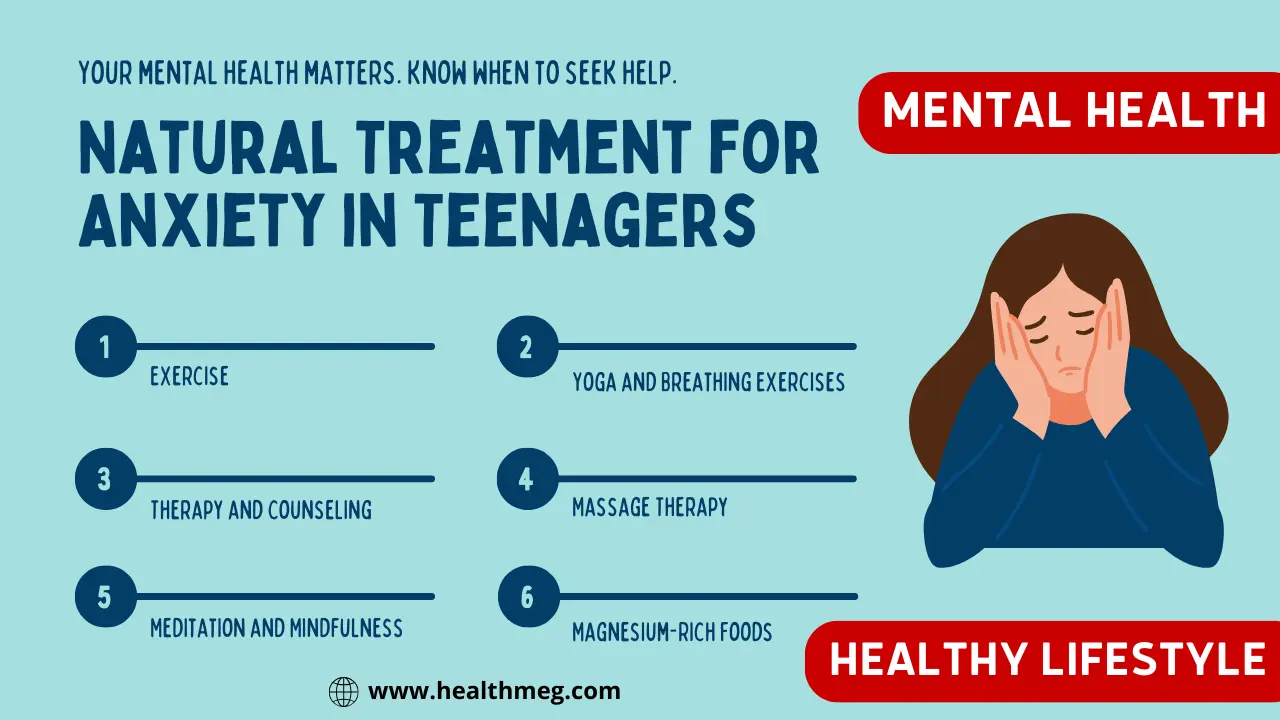


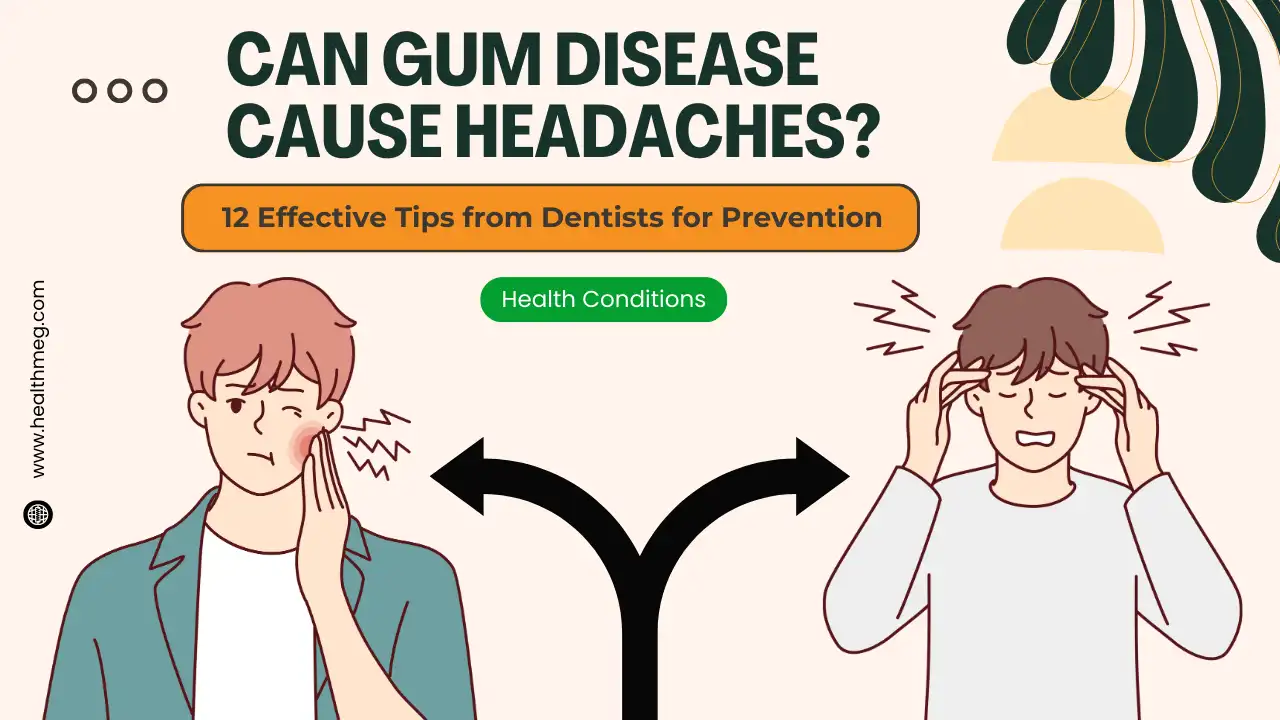


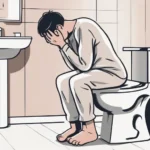
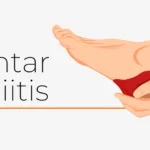


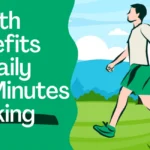


FlipBooks are a great addition
to any passive income strategy. Because once you create a FlipBook, market it, share it & Earn it, it can technically sell itself.
Learn More https://www.youtube.com/watch?v=JfRrd79oCfk?15607